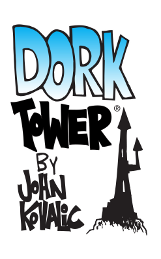Episode 39: The Book of Not At All Sinister Church Names
May 17th, 2013 | Robin
 Two mysterious doors provide ingress into the Gaming Hut. Which one do we take, as we contemplate adventure structure and the choice points that comprise it?
Two mysterious doors provide ingress into the Gaming Hut. Which one do we take, as we contemplate adventure structure and the choice points that comprise it?
Ask Ken and Robin takes an alternate history turn as Crane Brinton wonders: What does the alternate timeline where the Kaiser won WWI look like?
Then we hop into a mapping car and head to the Cartography Hut, where we riff on the storytelling inspiration of Google’s recent documentation of the Fukushima ghost zone.
We close with a visit to the Consulting Occultist, who recounts the Theosophy-meets-Evangelical-meets-New Age tale of Elizabeth Clare Prophet.
Podcast: Play in new window | Download
















It’s good to hear the Church Universal and Triumphant, Inc. get some airtime on K&R! Ken, have you heard the CD of their chanting that was put out a few years back? It’s a pretty popular thing to sample lately on Metal albums:
http://www.discogs.com/Church-Universal-And-Triumphant-Inc-Featuring-Elizabeth-Clare-Prophet-The-Sounds-Of-American-Doomsda/release/754057
Youtube link:
http://www.youtube.com/watch?v=i3ZsUYKDJF4
I’d love to work them into a NBA or ToC game, but it’s hard to make the case when their #1 enemy is the likes of Bruce Springsteen and “Scooby Dooby Doo”. They would make a GREAT Illuminati card, tho…
Great episode.
When I’m putting together an outline for an evening’s gaming, I’m not going to even try to plot out all the decision points. The most I’m normally going to be able to do is set up one or two early problems and then let the players run where they will, which isn’t going to be where I expect them to go nine times out of ten.
I’ve gotten so that most times my outline ends with FROM HERE ON, IMPROVISE. It normally works out.
One way in which the Kaiser might have triumphed would be for Sir John French, then the commander of the British Expeditionary Force, to be permitted to continue in the preparations he was making to withdraw his force to the coast in 1914, after suffering the onslaught of the German armies in Belgium and not, as his political masters were insisting, join up with the French and defend Paris.
According to John Keegan’s THE FIRST WORLD WAR (which I’ve just been reading), it took Lord Kitchener, the Secretary of State for War and a more senior Field Marshal than French, coming over and telling Sir John to shut up and do his job to ensure that Paris did not fall for want of British co-operation.
If Kitchener failed to make the meeting on September 1st 1914 (perhaps the ship taking him to France is sunk?) then the Germans could perhaps have taken Paris.
I don’t think you could plot out all the decision points ahead of time, but I think it’s important that scenes contain them.
Gents, it would be my great pleasure to offer assistance addressing any questions regarding Scandinavian Death Metal.
My expertise also covers areas such as Scandinavian Black Metal, North American Death Metal, North American Black Metal, Sludge Metal, Stoner Metal, Doom Metal, Crust Metal, and other related sub-sub-genres. (Also available for support with questions about punk, post-punk, new wave, hardcore, electronic dance music, jazz 1946-1970, classic rock, and 1970s AM Radio Hits.)
Mostly, though, I’m frickin’ dying to know what the question about Scandinavian Death Metal was. If you email it to me I’ll do a little happy dance (which I will not, however, video and upload to youtube).
With great sincerity and eagerness,
Andrew
aka The Original DJ Argus
(not to be confused with my nemesis, that pretender DJ Argus from New Jersey)
Actually, maybe I will upload the happy dance video.
Dan Harms in his talk about the Folger grimoire mentioned John Denley and the English occult revival. I’d like to hear more about this.
For those of us not as well-versed in our occultism basics than Ken (which would be pretty much everybody), please consider doing a primer on the Rosicrucians. I remember ads they published in various magazines that I saw when I was a child, though details beyond that escape my recollection. Thanks!
Quick question:
It’s Friday night. Your friends have decided that YOU are running an adventure for them. You’ve just gotten off of work, you don’t have anything prepared. For some obscure, esoteric, abstruse reason, you can’t run a game system you created.
Which game do you run for your demanding friends, and why?
The fact that a Central Powers victory in WWI would have been no worse, and possibly better in the long run, than an Allied victory is perhaps the most tragic thing about that war. It was literally fought for nothing. It “settled” none of the issues which began it and spawned various national resentments which endure to this day.
Worse yet, it killed Europe’s soul. The confident Europe which believed itself the vanguard of human progress vanished. Today, European nations are depopulating themselves — effectively going extinct as cultures — and I believe one can blame it on World War I.
I’m delighted and honored to have had my question replied to with a whole podcast segment. All I’d hoped for was a few book or story recommendations.
Although WWII German-victory alternate history tales are (at best) a dime a dozen, I don’t recall coming across any good treatments of WWI German victories. It’s an odd mismatch.
I’m unconvinced at blaming WWI for “kill[ing] Europe’s soul.” If that happened at all (which I doubt), WWII had a much greater share of the responsibility. And I don’t think WWII was inevitable. An enforced settlement after WWI was possible, even though not achieved in actual history.
I’ll pre-emptively agree with Ken Hite in saying Wilson’s high-handedness and unwillingness to pay attention to US political realities played a big part in keeping it from happening. I think Robert Lansing was right–it was a huge mistake for Wilson to go to Paris.
I have a question for you both: In a procedural RPG with iconic rather than dramatic characters, what are some good ways to play out conflicts between characters that don’t involve the digging in of heels? If iconic characters exist to put right disorder by being true to themselves, how can they have meaningful interpersonal conflicts in game without everything devolving into a pissing match or a punch-up? Finally, I would greatly appreciate an example involving a paladin (or even a pair of paladins), since they are notorious for this sort of thing.
[thanks for the primer on asking questions, appreciated. Will try to hew to those rules]
Robin – Are Robn’s Laws still relevant today? (Reason I ask – will be GMing again after a long absence (around when Robin’s Laws first came out in that Steve Jackson pamphlet)).
Ken – Don’t you think Creating Your Own Alternate History would be a great college course? A great way to fool people into learning about real history by creating a “fake” one.
I have something to ask Ken: Ken would you draw a Nerd Trope pair of cards please?
Ken – Would you recommend running NBA in a significantly earlier period of time (say, Elizabethan England or Milan under the Sforzas)?
Another fun episode, as usual. Great ideas for games and stories. Rich material (the Fukushima segment, alone, has hooks).
Here;s a question. What’s the role or place of writing parallel worlds that converge on our own but are not specifically alternate histories. “E.g. Kentucky Fried Lizard Partes. The Commandant’s Secret Recipe!” Is more less, or is the whole idea just too silly?
Not following the Kentucky Fried Lizard part of this. Could you rephrase?
This might be a “Ken question,” but:
What does H.P. Lovecraft’s career look like if he lives to be 90?
Bravo. Outstanding question.
Here’s a question that I believe meets the guidelines: Why is fantasy the dominant genre in tabletop gaming? Is that the long legacy of D&D, or is there something inherent to wizards and dragons that gives it such primacy?
Google Maps will show you my corner of Aurora, Illinois. Unlike the Fukushima-area street views you describe, my neighborhood is not a ghostly radioactive desolation; in fact, I am paid to make sure that it stays that way. Your tax dollars at work. (Well, not your tax dollars, Robin.)
Nevertheless, I confess I have warped reality slightly. On the day when I found the Google Mapmobile rolling by my doorstep, I observed it turning a corner and realized that, in a few minutes, it must emerge right over there. When it did, my car, my camera, and I were waiting. I got some good pictures of the Google car.
Then, I’m afraid, I stalked it. Just a little bit.
Eight months later, cartographic data having been processed, I found that Google Street View had turned me into The Duplicated Man or, at any rate, The Duplicated Burgundy Pontiac Vibe. My neighborhood is littered with copies of my car. The driver: a man with a camera in front of his face. Spacetime has been shattered; the observer has become the observed.
How does Mr. Hite’s alternate timeline affect the development of nuclear power? Who gets the bomb first? Is there a Fukushima accident? A Chernobyl?
If Germany wins WWI, they almost certainly remain the cutting edge of science in general and physics in particular through (at least most of) the 20th Century. Obviously, they’re odds-on favorites to develop nuclear power. What happens after that is a more interesting question: it sure looks like Mutual Assured Destruction was an artifact of the Bomb coming along during a period of severe ideological (and not merely geopolitical) division.
Nuclear accidents are likely in any timeline; particular nuclear accidents much more dubious. Chernobyl may be a good spot for a power plant, for all I know, but a better-designed one is less likely to melt down. As far as Fukushima, the butterfly effect has taught us that hurricanes aren’t going to be the same decades after the point of divergence.
Just a note about Chernobyl: it wasn’t just that the power plant was badly designed. It was both badly designed and woefully out of date, but even then it was boneheaded — and repeated — human error that caused the meltdown. Basic maintenance was neglected, the crew was almost entirely untrained, and then someone decided to run a really stupid test by disabling the safety mechanisms and then shutting off the water pumps to see if the turbines could start them back up on their own. Turns out they couldn’t.
Good heavens. Robin’s comment on the number of choices a mind can wrangle before melting down has helped me to understand my wife, who carries everything all the time in the front of her mind, so much better. Whereas I used to wonder why a simple decision would send her off into a tailspin, now I realize that I am adding the 8th, 9th, or perhaps 12th thing to the menu of decisions that she’s wrestling with at any given time. So, Ken and Robin are also inadvertently dispensing marriage advice. Amazing, Gentlemen.
Bibliography
Elizabeth Clare Prophet – Fallen Angels and Origins of Evil: Why Church Fathers Suppressed the Book of Enoch and Its Startling Revelations.